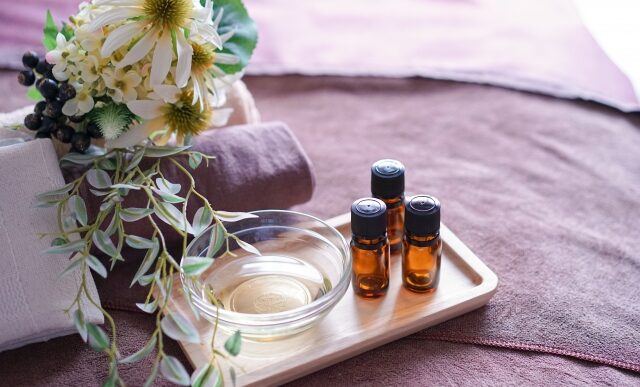You can pay by cash or credit card.
Yes. For same-day cancellations or no-shows, a cancellation fee of 100% may apply.
We reserve your time exclusively and decline other bookings to accommodate you. Our therapists also prepare in advance for your visit.
Please contact us as early as possible via WhatsApp or email.
We appreciate timely notice and will do our best to assist you.
We understand that unexpected situations can arise. Please contact us to discuss. We’ll handle each case with care and flexibility when possible.
If you reschedule for another available time on the same day, there is no cancellation fee.
Acupuncture
Acupuncture needles are thinner than a human hair (usually 0.12-0.2 mm), and insertion of the needles is usually painless.
You may feel a slight sensation when the needle is inserted, like a pinch or plucking a hair.
Once the needles are placed, patients report a variety of sensations, including tingling, deep pressure, achiness, heaviness, and sometimes nothing at all. These sensations that accompany needling are called
"hibiki" in Japanese, and different styles of acupuncture bring about different sensations; however the clinical efficacy does not depend on the intensity or type of "hibiki", so do not be concerned if you feel something in one session, but not in another.
If you feel any pain or discomfort, let your acupuncturist know and he or she will make the necessary adjustments.
It is very common for patients to feel relaxed and fall into a light sleep during the session.
Acupuncture has been practiced in Japan since it was introduced from China in the 6th century. While many of the principles of traditional Chinese acupuncture are still applied in Japanese acupuncture, over time differences in techniques have developed.
Although there is great variation in the styles of acupuncture that are practiced in Japan, a few characteristics are shared by many styles.
There is a tendency to emphasize palpation and gentle stimulation in Japanese acupuncture styles. Most Japanese acupuncturists use very thin needles and guide tubes called "shinkan" to help make insertions painless insertion, so patients often feel no needle sensation throughout the entire treatment.
Acupuncture and moxibustion are widely known to effectively treat musculoskeletal problems, including neck, shoulder, lower back and knee pain. However, since ancient times they have also been used to treat many other conditions, including those that involve internal and mental functions.
Diseases and disorders that are commonly treated with acupuncture and moxibustion include:
‹Neurology> Neuralgia, Autonomic imbalance, Headache, Migraines
‹Cardiology> High or Low blood pressures, Rheumatoid arthritis, Sciatica
Asthma, Bronchitis, Common cold
‹Gastrointestinal> Abdominal pain, Constipation, Diarrhea, Nausea,Hyperacidity, Indigestion
‹Gynecology> Infertility, Menopausal symptoms, Premenstrual symptoms, Irregular period, Period pain
‹Ear, Nose and Throat> Sinusitis, Tonsillitis, Sinus infection, Tinnitus (Ear ringing)
Eye strain
‹Pediatric> Night terrors, Colic, Bed-wetting
Anxiety, Depression, Insomnia, Neurosis
‹Others> Postoperative pain, Toothache, Addiction control, Athletic performance, Stress, Chronic fatigue
Acupuncture and moxibustion can help many other symptoms that are not listed here. Please ask your acupuncturist about anything in particular you are concerned with.
When practiced by a licensed, trained acupuncturist, acupuncture is extremely safe.
In Japan, acupuncturists are licensed by the Minister of Health, Labour and Welfare after passing an examination and graduating from an accredited technical school or college. No other health care providers except medical doctors are legally allowed to practice acupuncture and moxibustion in Japan.
Only sterile and disposable needles are used at this acupuncture clinic so there is no risk of infection.
If you have a pacemaker, have a tendency to bleed or bruise easily, or if you are a hemophiliac or pregnant, you need to notify your acupuncturist before receiving treatment.
There are very few side effects to acupuncture. That said, a few patients experience drowsiness after treatments. Other acupuncture side effects include fatigue, soreness, bruising at the insertion site and lightheadedness.
A small number of patients will find that their symptoms worsen after the initial treatment, but it is often followed quickly by improvement.
You can resume your normal activities. You may feel more relaxed than usual. If possible, take it easy for the rest of the day. We do not recommend engaging in any excessive behavior, including strenuous physical activity, over-eating or heavy drinking.
Soreness or slight bruising infrequently occurs at the needling site. Soreness typically dissipates within a few days. Bruising should disappear within a week or two. It is nothing to worry about beyond the aesthetic inconvenience.
On rare occasions, your symptoms may worsen for a short time after the treatment. If the symptoms persist for more than a few days or continue to worsen, please contact your practitioner.
Aroma treatment
We have disposable pants available.
Of course you can choose.

